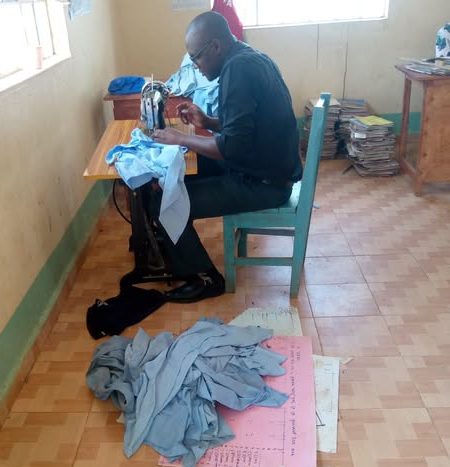By Charles O. Okoth
This controversial issue is back in the limelight. It is now being revisited by parties that seem to have suddenly seen the light like Saul of Tarsus. It would seem as if they have just heard of it; as if they were on some sabbatical when the whole scheme was mooted some years back by the Teachers Service Commission (TSC).
Delocalization of head teachers was a scheme by which teachers were required to serve away from their home places. Thus if you were from Nyanza you were taken to a school in Western, Central region teachers suddenly found themselves in Nyanza and Western while Western region teachers found themselves in Eastern and Coast. In effect, one had to be ready to explore new ground.
At face value, it was a noble thing. Teachers, like policemen and other civil servants, were required to serve anywhere their services were needed and not just in their home areas. The idea of ‘Son or Daughter of the Soil’ was to be dispensed with. After all, no one was trained to teach in their home places alone. The TSC code and condition of employment are explicit on the issue: one is required to serve ANYWHERE.
At the time it was effected, the TSC mandarins argued that this would enhance nationalism. It was no good for students in a region to be taught by teachers from the region only. This was localizing the whole issue. They needed to have a touch of Luo, Luyia, Kikuyu and at least all backgrounds in a bid for students to end up well-rounded. This, incidentally, is one of the aims and objectives of education: inculcation of national unity and exposure and appreciation of the varied cultures of the peoples of Kenya.
So delocalization was a noble thing, both for education generally and for the teachers and learners in particular.
So, where did the rain start beating us?
It was at the point of implementation of the policy.
A policy can be very effectively implemented without raising eyebrows if the implementation doesn’t end up looking like a surgery. What TSC did was a surgery, instead of applying preventive treatment.
What if?
What if they had come up with a policy where newly employed teachers were posted to schools away from their home counties to start with? After all, when policemen leave Kiganjo, they are not asked where they want to go. They receive their posting letters and head there. Same to other public officers.
What if TSC had adopted a ‘bottom up’ method, where lower cadre teachers were targeted? A teacher from Kakamega crossing over to Busia doesn’t raise eyebrows. Or one from Elgeyo Marakwet going to Uasin Gishu. Kisii to Kericho or Migori. Nakuru to Nyandarua. Why not? Who would think someone was being messed or targeted?
As for heads, what if they were put in groups? Look, there is no need to remove a head teacher from Busia to go and retire in Migori two years later.
Talking of age, if a head teacher has five years to go before retirement, I think the rational, non-punitive step would be to transfer that teacher within the county. A different sub-county would not be a good idea.
A teacher with ten years to go can comfortably work in a county neighbouring their own. Kakamega teachers can thus go to Kisumu, Siaya, Nandi, Busia, Bungoma etc.
Younger head teachers can be dispatched a bit further from home without feeling some sort of trauma. That is a fact. It is easier to adjust to a situation when one is younger. But telling an old man to pack up and go is unnecessarily stressing a worker, and that is not good for productivity. QED.
There are other factors that must be put in consideration when effecting these transfers.
I pointed out earlier that a ‘bottom up’ approach is worth considering. Now, if the objective is to ensure learners are subjected to teachers from different ethnic backgrounds, it serves no purpose to target head teachers only and let the rest of the staff be local. It can be counter-productive.
When a teacher from Taita is taken to a school in Kisii and finds a staffroom full of Kisii teachers, he or she could get it rough. The fact is that it is very easy to disorganize such a head teacher, by even using students and claim they have failed. Anybody who can call this farfetched is simply being unrealistic. We have seen very many such cases.
The best would be to systematically mix the teachers. There is no need to have a staff where blocking can easily happen.
Another thing the Ministry should consider is the idea of delocalizing support staff. It is a fact that these can also mess up the delocalized head teacher.
Jogoo House ‘B’ should seriously think about re-introducing the idea of GP33 workers. Must an accounts clerk be local? Cooks? Watchmen? Lab assistant? Librarian?
If these are local, they can form an opposition block which can affect the running of the school. That is a fact.
In short, delocalization was a noble thing but it was ‘ignobly’ effected. Let it be revisited, and done in such a way that it doesn’t look like a punishment. Let it be something to look forward to; not to dread. We know TSC is an independent body, but it must demonstrate tact in its operations. “It derives its powers from the consent of the people it serves,” if I may quote Jean Jacques Rousseau in The Social Contract.






